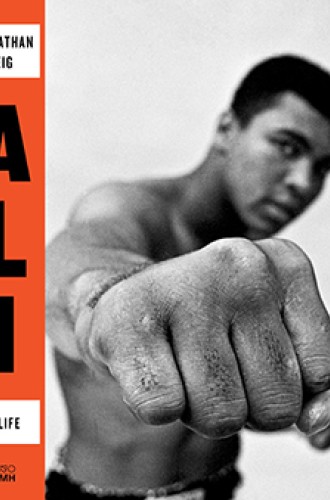How Muhammad Ali influenced public debate
Jonathan Eig's biography shows how the boxer took on opponents in multiple arenas.
Muhammad Ali was hardly ever quiet or still. As a young man, he was handsome, brash, and charismatic. His loud southern voice sang out in rhymes, brags, and opinions, as if the world were his carnival show. A brilliant entertainer and athlete, Ali reached a level of media attention and cultural fame surpassed in his time only by Elvis and the Beatles.
Even after his boxing career was over—his brain addled by years of blows to the head, his hands trembling with Parkinson’s disease—Ali’s personality radiated a warmth that still attracted crowds. President Jimmy Carter named Ali a special emissary to Africa. George W. Bush presented him with the Presidential Medal of Freedom, calling the boxer “a fierce fighter and a man of peace.”
As a high school student in Louisville, clowning for his classmates and drawing attention to himself with boxing skills and abrasive humor, the young man, known then as Cassius Clay, desired the kind of happiness he felt when he was the center of attention and the kind of wealth he thought only some white people had. But he was a mediocre student, and his high school diploma was a “certificate of attendance” presented for academic efforts that placed him near the bottom of his graduating class.






